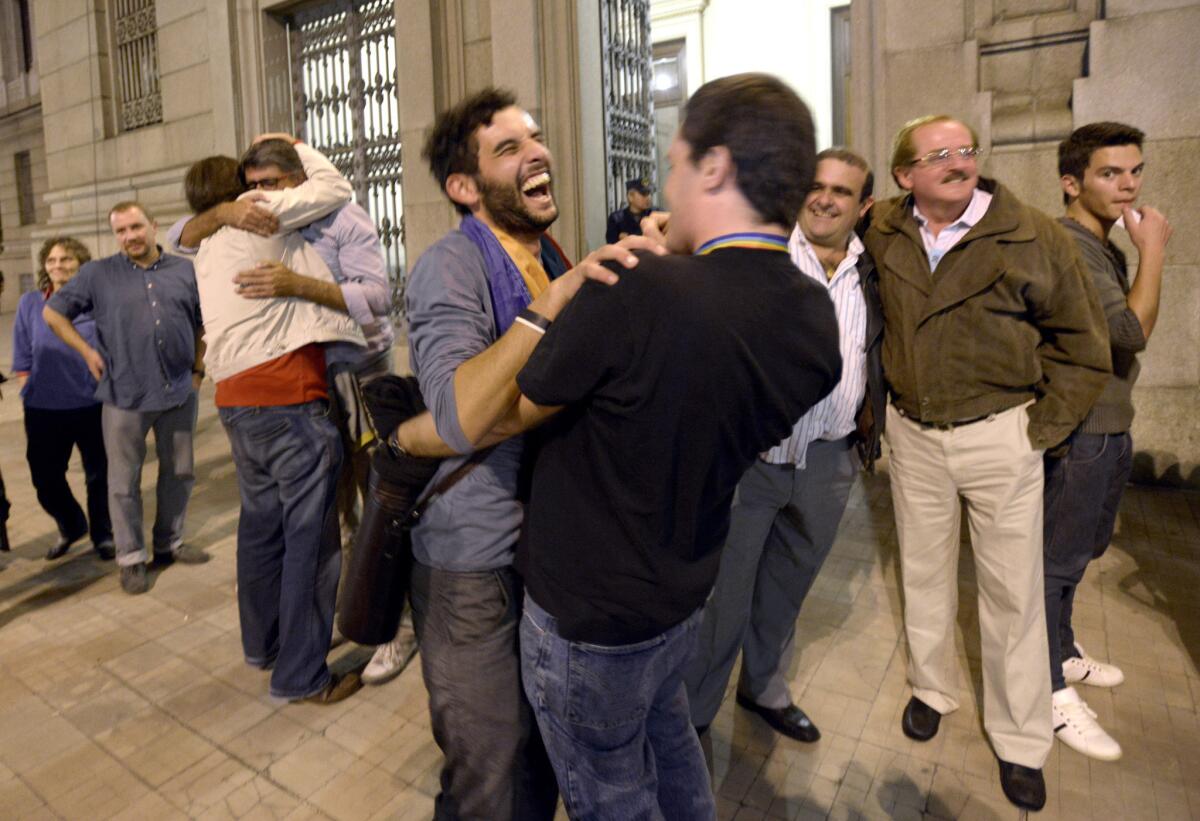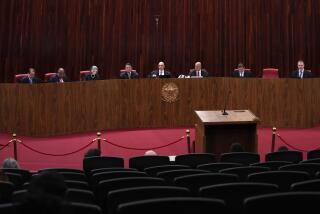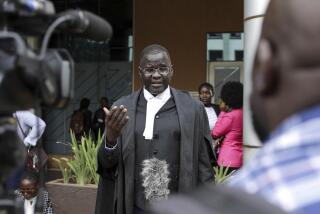Gay marriage on verge of becoming legal in Uruguay

- Share via
Uruguay is poised to become the second country in South America that allows gay marriage, after lawmakers approved a bill despite the objections of the Roman Catholic Church.
President Jose Mujica is widely expected to sign the “equal marriage law,” which the nation’s Congress approved Wednesday. The bill removes references to “husband and wife” in marriage contracts, substituting a gender-neutral term, and also allows couples of the same sex to adopt children.
“A marriage is a union of two people who love each other,” leftist lawmaker Sebastian Sabini said Wednesday, according to El Observador. ”Nothing more and nothing less.”
Before the vote, Catholic bishops in Uruguay said that the law “jeopardizes the rights of the child” and went beyond protecting the rights of gay couples to “assimilate these situations into marriage.” The bishops quoted the words of Pope Francis, who opposed gay marriage while serving as archbishop of Buenos Aires in neighboring Argentina, writing, “The identity and survival of the family is at stake.”
Gay marriage opponents lost that fight in Argentina, the first country on the continent to allow same-sex couples to wed, and now appear to have lost it in Uruguay as well. The law was approved by 71 out of 92 members in the lower house; it was passed by the Senate last week.
Eleven other countries worldwide already allow gay marriage on a national level, while Mexico, Brazil and the United States permit them only in some jurisdictions. France, Britain and New Zealand are weighing same-sex marriage in their legislatures.
In Latin America, the pace of change has been stunning, said Andres Duque, a New York City blogger who writes about gay rights in the region.
“I’m astounded at how rapid it has been,” Duque said. “I see so much going on that I once thought was impossible. It makes me really emotional. ... You see little groups of people who have few resources get these huge victories that don’t even exist in the United States.”
Gay marriage could soon be a reality in Colombia, the country where Duque was born and which he left decades ago, fearing that he couldn’t live openly as a gay man. Under a court ruling, the Colombian Congress must create laws to protect same-sex unions or they will be automatically recognized in June.
Chile will face the issue at an international human rights court of the Organization of American States, after a rights group pushed its case for marriage equality. The Brazilian and Mexican states that already allow gay marriages are prodding their countries to take up the debate, Duque said.
After Uruguayan lawmakers voted Wednesday in Montevideo, members of the gay rights group Black Sheep Collective celebrated, draped in rainbow flags. Jubilant couples hugged and kissed; one celebrant wore a white dress and a bridal veil.
“I have all the rights and obligations of everyone else. I pay my taxes and fulfill my responsibilities,” Roberto Acosta, 62, told the Associated Press in Montevideo. “Why would I be discriminated against?”
ALSO:
Five women detained in Israel over prayer shawls at Western Wall
North Korea poised to launch up to five missiles, South Korea says
France’s richest man drops controversial bid for Belgian citizenship
More to Read
Sign up for Essential California
The most important California stories and recommendations in your inbox every morning.
You may occasionally receive promotional content from the Los Angeles Times.










